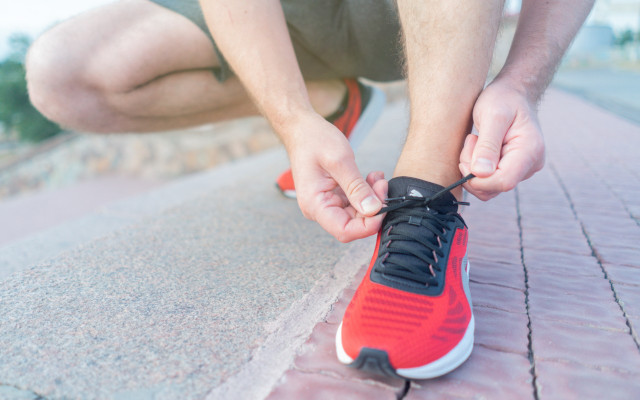
We live in times when cohesion, mutual consideration and help in society are once again more important. That’s right and good, but it often leads to us forgetting the most important person in our lives: ourselves. With these tips and tricks, you’ll learn more self-care for yourself.
We often take care of others first, putting our own needs second. Learning to take care of yourself and pay attention to your own well-being has nothing to do with selfishness. On the contrary, we can only be there for others and give them the best possible support if we are doing well mentally and physically. Our tips and tricks will tell you how to do this.

What exactly is “self-care”?
Learning to care for yourself means prioritizing your own needs and limitations, taking care of yourself, and making sure that you are comfortable. Basically quite simple, but we often find it difficult to follow this principle. Be it because of (actual or perceived) societal pressures, general performance thinking, or because we don’t want to give ourselves too much importance or allow ourselves to put ourselves first.
Self-care is far more than an agenda item to tick off weekly or daily. Rather, it is a loving, appreciative attitude towards oneself and their needs that runs like a red thread through all areas of our lives. Self-care means saying “no” and being able to say when we don’t want or can’t do something. Taking breaks and generally putting our health, both physical and mental, first is an important point.

Why self-care is so important
Unfortunately, in many cases, the idea that a person’s value is determined by their professional or social performance is still anchored in our heads. We work too much, rarely take breaks and ignore our body’s health warning signs. Exploiting oneself to meet supposed societal norms, however, creates stress and can make you ill in the long run. The spectrum ranges from burnout and depression to obesity and heart attacks. At the latest then we can no longer help others and no longer fulfill our “tasks”.
Learning self-care means perceiving yourself as lovable and important and knowing and respecting your own limits and needs. This also benefits our environment. It makes little sense to promise help with a move, for example, but then be unable to carry anything because you are physically exhausted from the week before or have problems carrying heavy objects anyway. At the same time, self-care strengthens our resilience, i.e. the ability to cope well with crises and thus to be able to help others in difficult situations.

How can I learn (more) self-care?
Many of us find it difficult to prioritize our own needs and say “no” when we can’t anymore. We shy away from it because we fear that we will then no longer be there enough for others. The best way to learn self-care is to make small changes in everyday life. For example, when we start paying attention to nutrition. Supplying your body with all the nutrients it needs to be healthy and efficient is a form of self-care that is also perceived positively by those around you. The nutritional coaching provided by Techniker Krankenkasse, for example, offers support in putting together a menu or analyzing your own eating habits.
Another starting point for learning self-care is to exercise more. Why not get out there and go? Because exercise is healthy for many reasons. It stimulates the circulation, promotes brain activity, reduces stress, helps to avoid obesity, is a balance to a mostly sedentary job and provides necessary breaks from everyday life. Doing half an hour of sport several times a week means doing something for your own health and taking care of your own well-being.

Breaks are good and important
Breaks are a third way to learn self-care. Scheduling time for relaxation and not putting it off until vacation, the weekend or after work is a simple tool to focus more on your own needs. This does not necessarily mean taking a nap in the middle of the day. Taking a break means getting up in between, going to the window and stretching. Or to eat lunch in peace and away from the workplace or, when the weather is nice, to walk around the block in the fresh air.
What the three types of self-care mentioned above have in common is that they “disguise” themselves, so to speak. Nobody would think of calling it selfish if we take care of our health, eat a balanced diet, exercise or get up from our desks in between. And once we have started to deal positively with our needs in this way, it will later be easier for us to make decisions in such a way that the result is good for us.

Tips and tricks for more self-care in everyday life
It is important for our health to learn how to integrate self-care into our everyday lives. Here are a few tips and tricks on how to do this.
-
Plan downtime as an “appointment with yourself”. If you have problems finding time for yourself because private or professional appointments keep coming up, you can simply enter an appointment with yourself in the calendar. Half an hour a day just doing what you feel like doing. How about reading a book, going for a walk or just doing nothing at all?
-
Do sports regularly. It should be half an hour or an hour of exercise four to five times a week to achieve an optimal effect for yourself. Programs such as Raus und los from the Techniker Krankenkasse help to find a good reason to exercise and thus to practice self-care.
-
“Writing a diary. Writing helps you to find out which needs underlie certain behavior or which situations are particularly energy-sapping for us, so that we can deal with them better in the future.
-
learn to meditate. Meditation helps to achieve more serenity in everyday life, strengthens our psyche and for that reason alone is a form of self-care.
-
Take time to think. Instead of immediately answering appointment requests, whether professional or private, we should take a short time to think about it. This helps to clarify any existing obligations, to avoid conflicting appointments and also to ask oneself whether one is still in a position to help with the move or the wedding preparations after a busy week.
- Last but not least: say no more often! We should realize that saying “No!” to things that don’t feel good, overwhelm us or weigh us down does not diminish our self-worth.

Self-care is balm for you and others
We can only support others and be there for one another if we are mentally and physically healthy. Learning to take care of yourself and pay attention to your own needs is therefore not selfish, but an important and correct step towards more mental and physical health. Programs and courses that support you in self-care often also help. From nutritional coaching to mindfulness and meditation training to DepressionCoach – you can find support for your inner motivation at Techniker Krankenkasse, for example, which supports you with great campaigns, apps and programs such as Get Out and Go. Because when you take care of yourself, you not only set a good example for others, you also do something good for your body, mind and soul.
To the homepage of the TC
You might also be interested in:
- Through self-reflection to more self-confidence and mental health
- Set healthy boundaries: Here’s how you can stick to them
- Online meditation and mindfulness course
- What exactly is body positivity?
You might also be interested in these articles
-
Is coffee good or bad?
-
Progress Pride Flag: History, Design, and Where It Has Soared
-
Family time: relaxed through the cold season
-
Living consciously: The most important questions we should ask ourselves in everyday life
-
Can you plan happiness? Tips from happiness research, philosophy & Co.
-
Intersectionality: what does it mean?
-
Healthy and happy through the winter
-
Accelerate Wound Healing: This will help your wounds heal faster
-
These 9 foods will help protect you from cold and flu